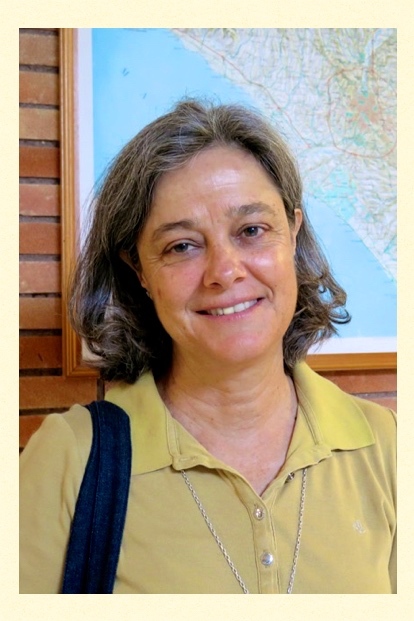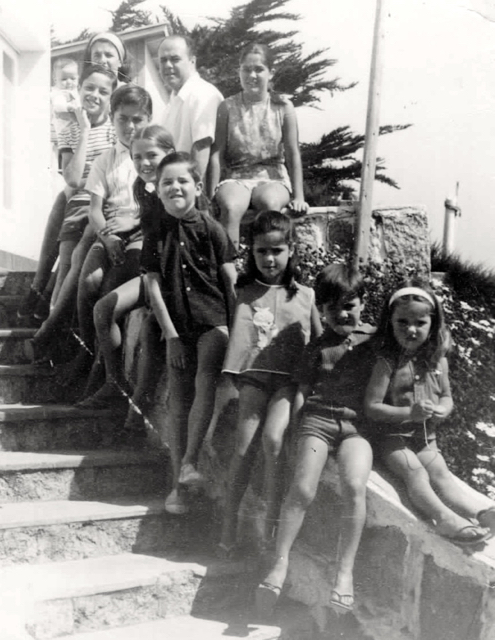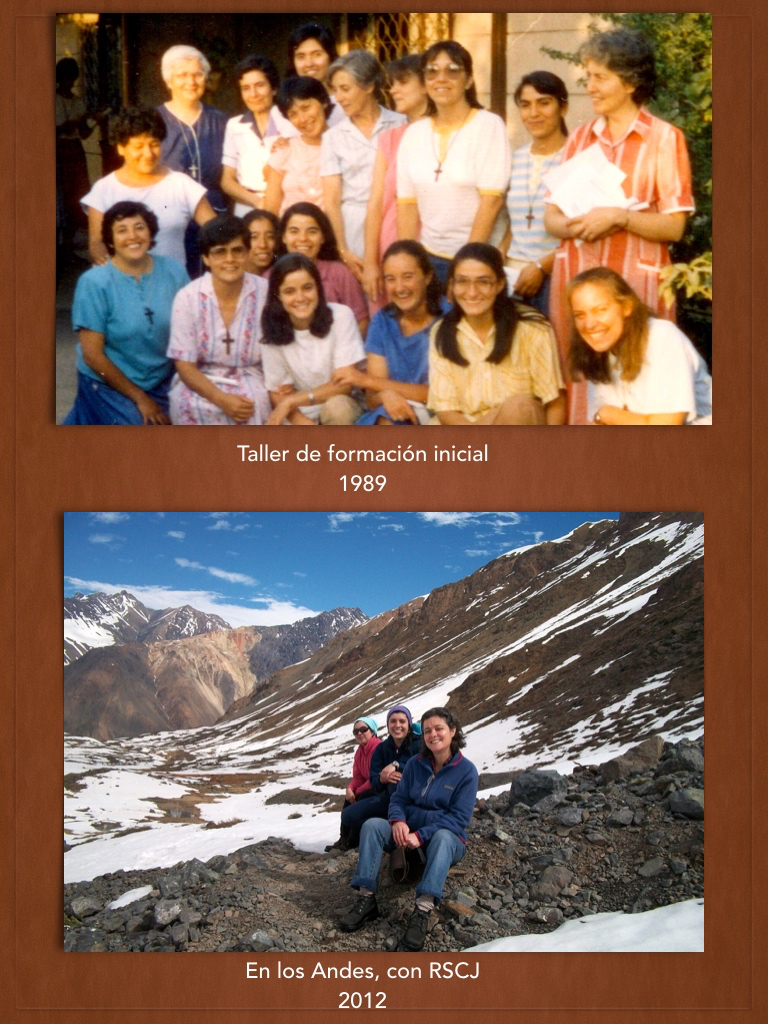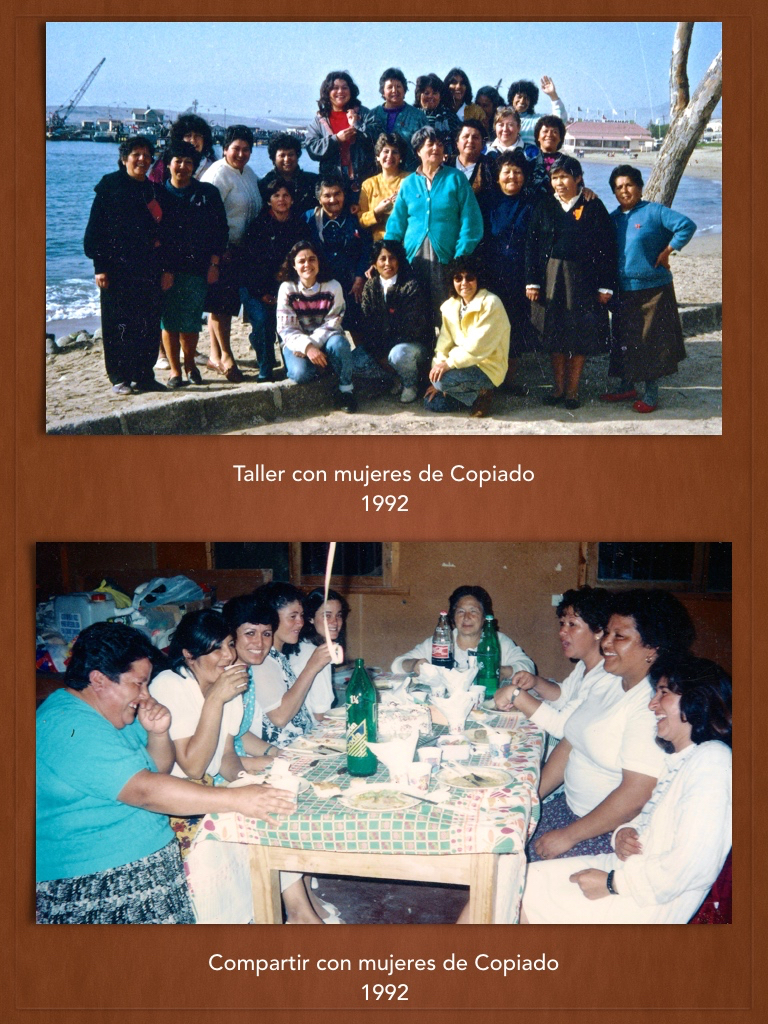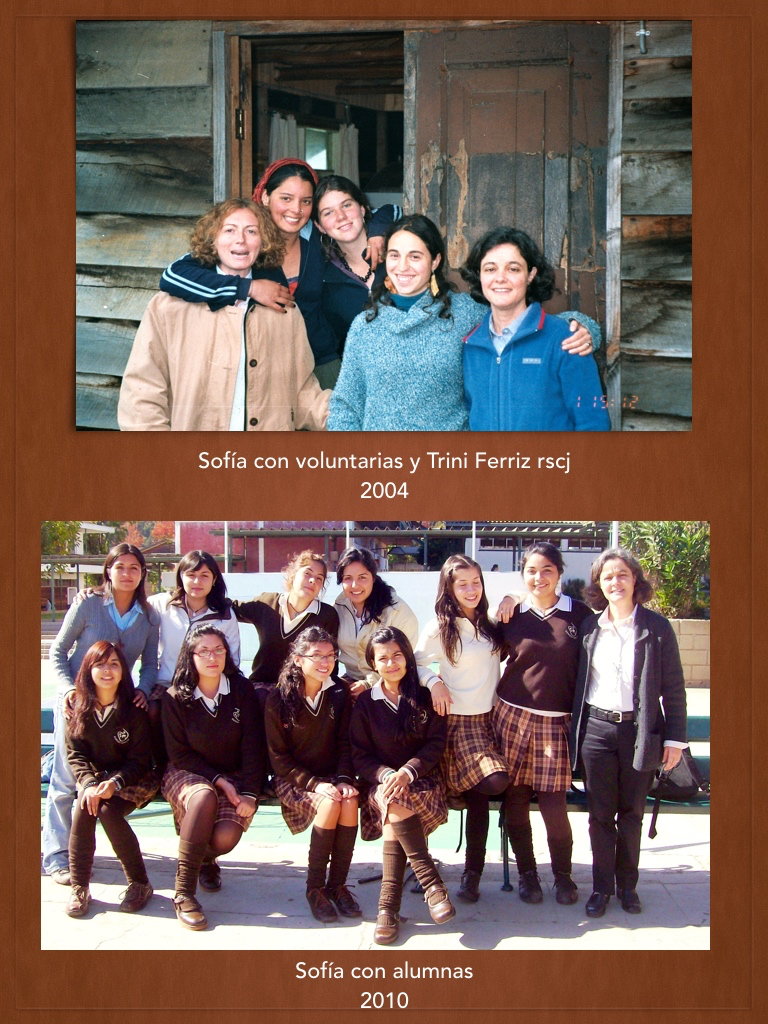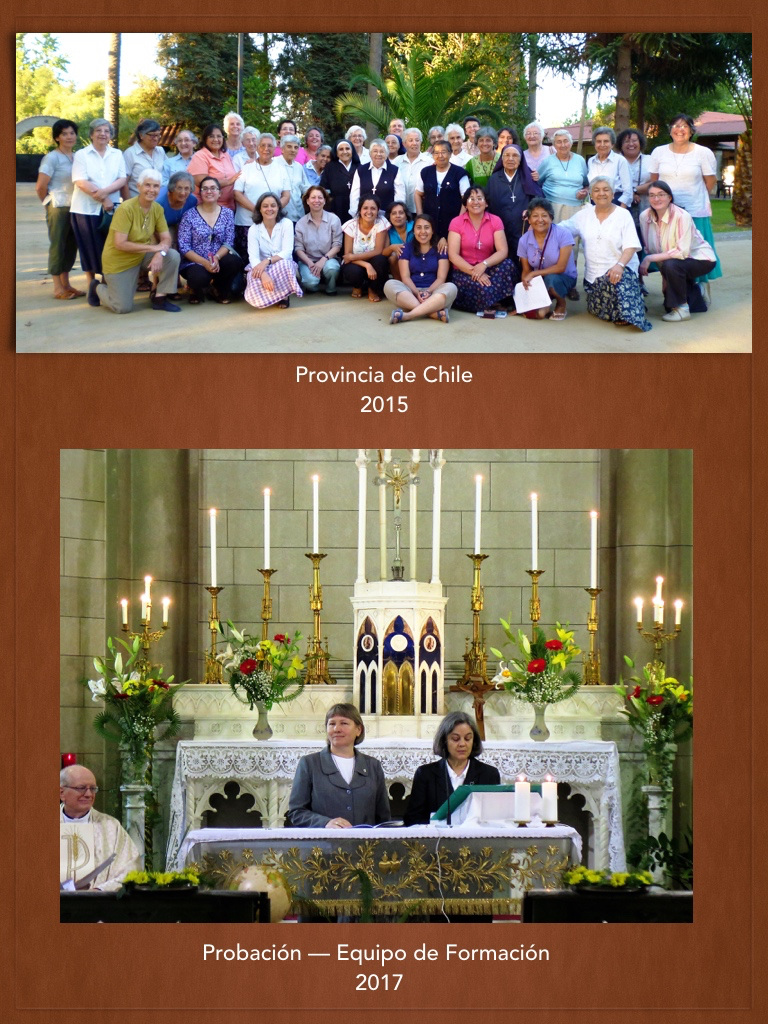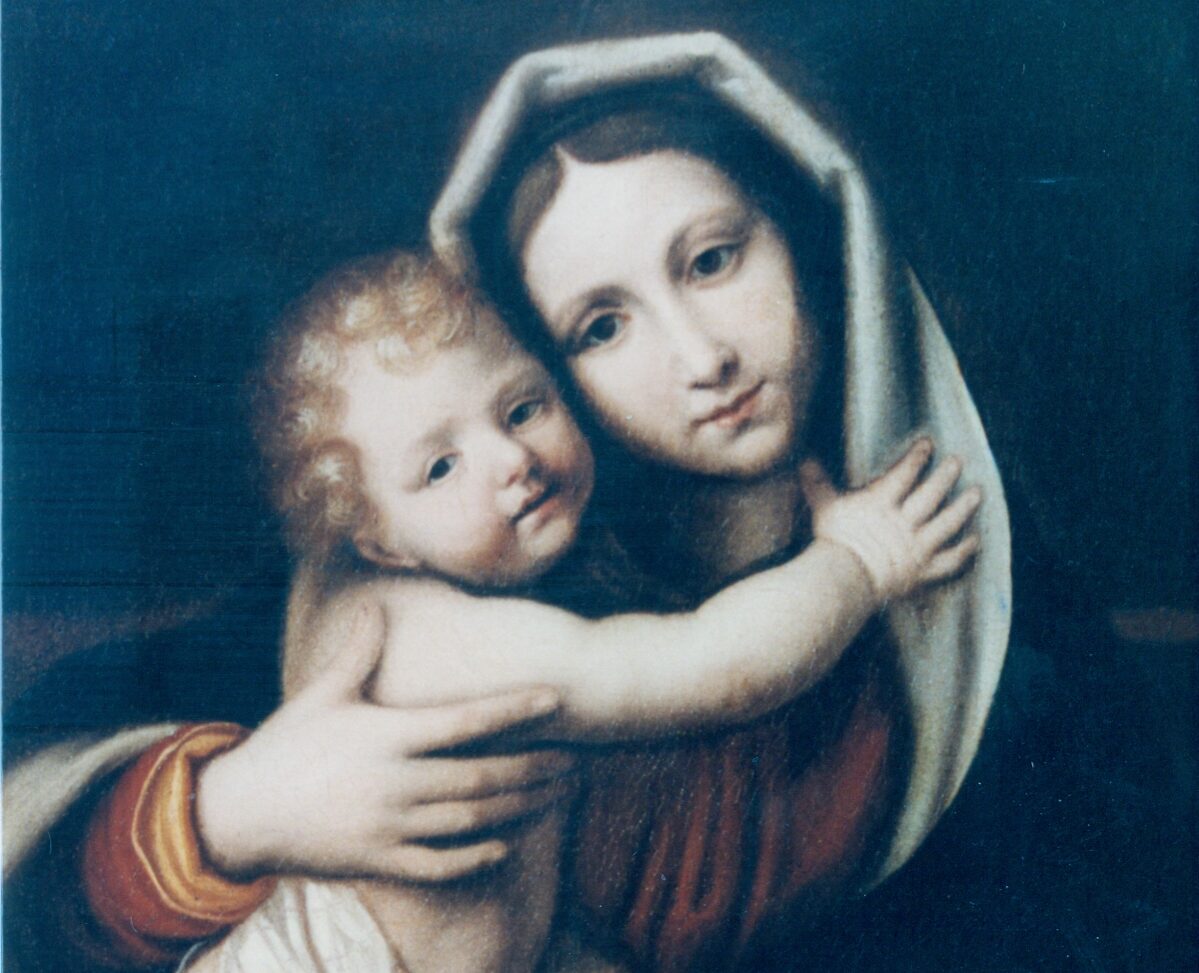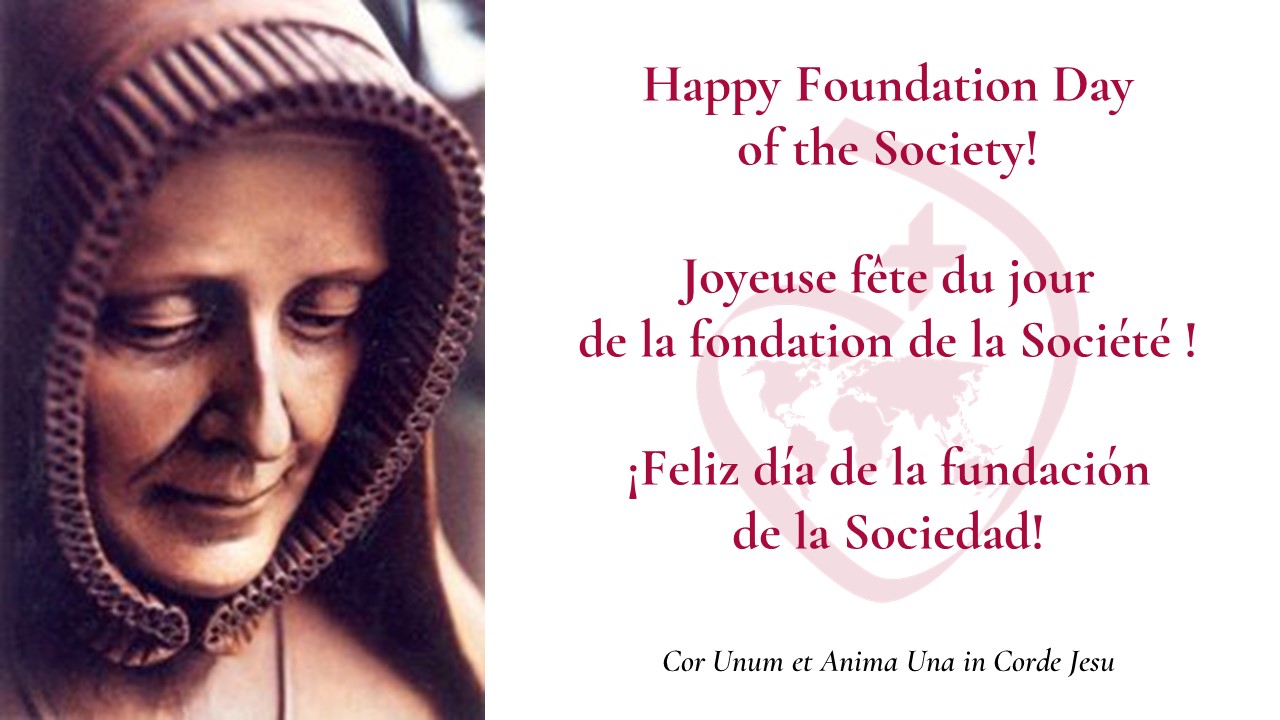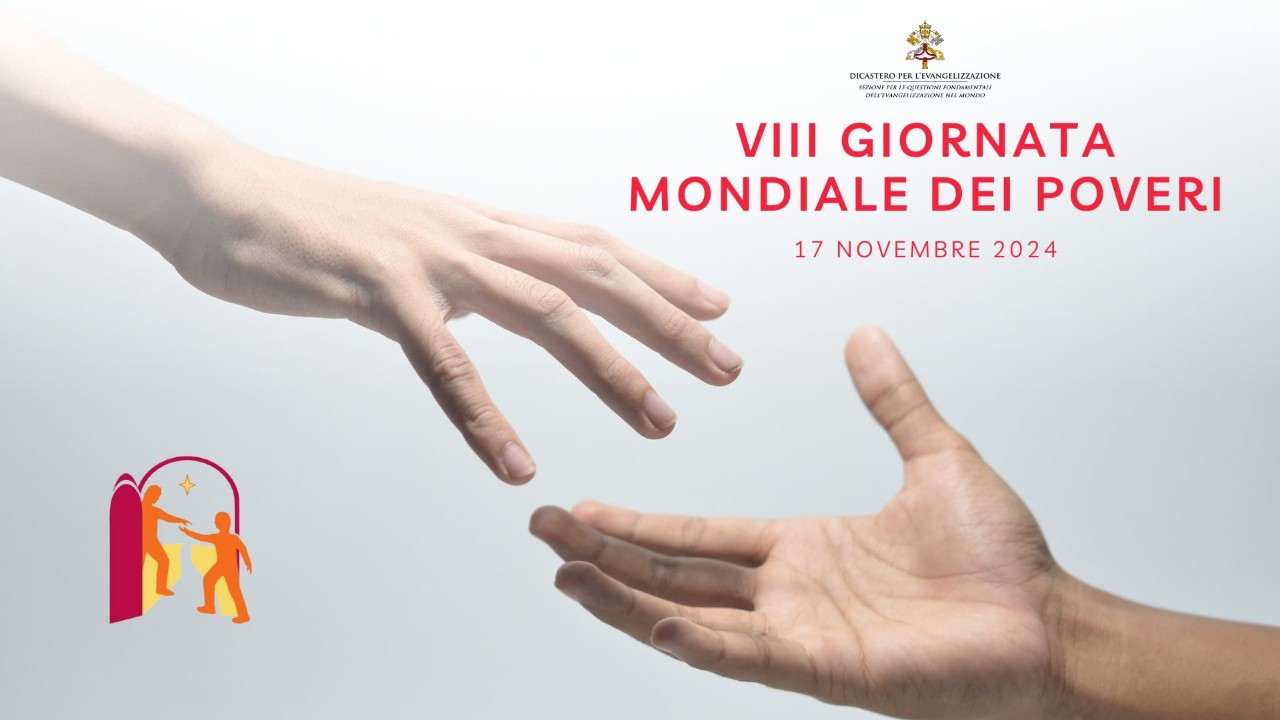I was born in 1962, the sixth of ten children, five girls and five boys. My father is an architect. My mother went to university for one year, but caring for one of her sisters, and then getting married and having children, meant she had to be full-time looking after us. Both sets of grandparents emigrated from Spain during the recession of the 1920s.
Along with all my siblings I was brought up with my cousins and the children of my parents’ friends, in the faith my parents lived by. When I was eight years old, they gave me the New Testament when I made my First Communion, and since then it has been a source of nourishment for me.
I spent my school years with the Ursuline Sisters. During those years I got to know Mary: deep, simple, sensitive to the poor and hungry. She waited in trust and acceded to the plan of the God of Life and Liberation for all men and women. Her words: “Let it be done unto me” echoed profoundly within me during my adolescence.
In Chile we lived the political situation very intensely. We had an active democracy. Both in my family and among my friends, we discussed the events and decisions taken by governments. The Military Coup of 1973 and the almost 20 ensuing years of dictatorship, with violations of human rights, injustices and the reality of extreme poverty, formed and marked me to the point where I felt that God was teaching me and calling me.
All of these factors, without a doubt, influenced me in my search for God, for meaning in life and the values I have built my life on. Being privileged to have care, education, health, and opportunities to grow and enjoy life led me to listen to what God wanted of me, to open myself generously to the needs of others in my country and in the Church.
When I was 17, I was helped in my searching through the accompaniment I had in a Christian community of young people. Furthermore, my Social Work studies put me in contact with the lives of young people, and poor, marginalised men and women. Gradually my life was founded on two pillars: God, and the poor. The Gospel, the Beatitudes especially, were for me a call to announce that nearness of a consoling God in the midst of so much suffering that the poor lived during those years in Chile and in most of Latin America.
I went to University for two years. During a two-week experience with a community of Mapuches (an indigenous people), it became clear to me that I wanted to live in a poor area, sharing my faith with simple people, and working for the Church. At that point I was not thinking of Religious Life. I didn’t know of any religious living among the poor. Through the person who accompanied me, I got to know a Sacred Heart community living in a very marginalised area. I was attracted by their simple lifestyle and the way they witnessed to the Good News through their spirituality rooted in the compassionate and humble Heart of Jesus.
The Sacred Heart communities were inserted among very vulnerable people. Their mission focused on accompanying Basic Christian Communities, faith formation, working with young people and empowerment of women. I came to know many RSCJ radically living the option for forming persons, healing wounds, witnessing to God’s love, building relationships and communities, working for structural solutions to problems, living in solidarity with the joys and sorrows of their neighbours.
I joined the Society of the Sacred Heart in August 1982. We had a novice mistress, Bernardita Prieto, who influenced me greatly, but who died so early. She taught me to place myself in truth before Jesus; she helped me to understand his humble and compassionate human heart, and showed me the richness of a life with Him, and the joy of growing more and more poor with Him and for Him.
After the noviceship I returned to the University to complete my degree in Social Work. While studying, I lived in an inserted community in Santiago where we worked with young street children, offering them a library and art workshops. In 1989 I went to the desert region of Copiapó in the North, where I worked with very deprived women, solidarity groups and self-help groups in a project to get homes for those without a home, and I also worked with young people. Community life was simple, going around the area visiting people, accompanying communities, sharing the life of the people. The people of Copiapó showed me what it meant to be an RSCJ and were my best formators in my time of temporary vows. I still have many friends from that time.
In 1993 I went to Egypt for my international experience before Probation. It was a gift that took me deeper into the mystery of the Incarnation. The life of the RSCJ, their service, their communities, the Coptic church, the children and the sick: everything opened my heart to a world of poverty and of a Church where the Gospel was revealed in all its radicality: “don’t be afraid little flock, the Father wants you to receive the Kingdom.” These words were so real in a place where many Christians suffered persecution and martyrdom.
I began a new relationship with Sophie Barat during those years, and also later with Philippine Duchesne and Ana du Rousier. I came to know them as women of their times, with the courage, vision, love and faith that impelled them to think of the world, leave everything, face conflicts and so many demands in relationships, the mission and their own personal growth. They, and other RSCJ, have been my faithful companions in different stages of my life.
I made my final vows on 6th June 1994, with another 26 RSCJ. Our Name is “Union of hearts in cultural diversity”. Our Devise: “With the strength that is in you, go, I send you” (Judges 6,14).
After probation I was sent to Madrid to study spiritual theology. I loved the lectures and sharing of life with other students, young people who came to study in Madrid and lived in the student hostel in Chamartín. On my return to Chile I was sent to an inserted community in Talca where I worked with the young people of the parish, taught literacy to adults and was involved in a centre for people living on the streets. I settled back into this realty, among men and women beset by so much suffering and yet filled with a hope and a joy that was so deep and unshakeable.
Two years later I had to make the sacrifice of leaving there to go to a community in the South to urgently replace one of the sisters in our school. I was there for 11 years. We lived in a poor area, going out every day to work in the school. For me the challenge was how to practice my profession as a social worker and my desire to be among the poorest, while working in an institution. The families of the school were simple, some of them also very poor, and slowly we found ways of getting close to the most excluded and sharing what we had with them: a cup of tea in the evenings, repairing the roof of a house so the rain wouldn’t get in during the winter, organising holidays for children, visiting isolated families in the countryside. They were years with a lot of vitality, always going that bit further, trying to reach those who are forgotten. My vocation was strengthened by witnessing the desires and the energy of those young people in the school.
Those were demanding years, as I also had to respond to various needs of the Province by being on the Provincial Team and in initial formation. In 2009 I was asked to be provincial. I tried to do my best, putting myself at the service of the sisters of my province. I always admired the trust they placed in me and the richness in the life of each one, her vocation and her commitment to the people in each of the communities where we lived.
In 2015 I returned to Probation at the Villa Lante in Rome, to accompany the probanists. I feel I am a sister walking part of the way with the other to help her “embrace her humanity and feed her vocation” (Life Unfolding).
I continue to be inspired by these words of Sophie to Philippine written in Niort in December 1811:
How is that we do so little for our God? I believe that we are making a mistake, and we are nourishing a very dangerous illusion almost without realising it. We have grand plans: welcoming great projects, desiring extraordinary things…
Would it not be better to act like the shopkeeper who doesn’t have the means to achieve the fortune he dreams of? He does not lose heart; not able to make grand investments, he decides to take little steps towards his goal. He works harder, spends less, and by these means amasses great wealth, indeed far more, and more securely than would have been the case in his first plan where he ran the risk of incurring great losses.
This is our model for spiritual matters….
I pray to Our Lord, my daughter, that He will light this living flame in your heart. Make the most of everything, to advance in virtue.
Your Mother. SOPHIE BARAT.
Section |Profiles
Province |Chile
